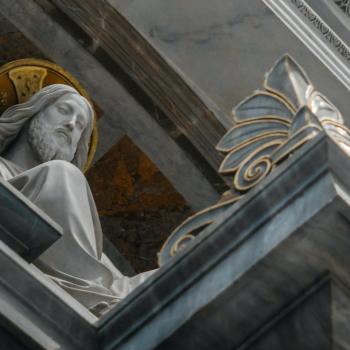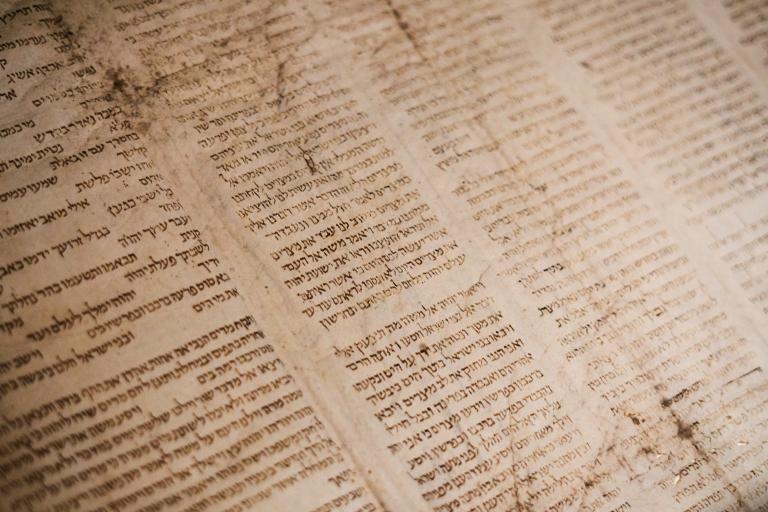Perhaps the stories in Matthew and Luke are indeed edifying fiction and parables as some scholars have long speculated (or perhaps they have many elements in them that stem from historical memories as others have argued), but it seems hard for me to accept how the claim of the Virgin Birth could have arisen without it truly having been believed to have historically happened.
INTRODUCTION
Every Christmas promises an onslaught of new articles about a host of typical holiday topics. The Nativity of course, is usually high on the list. Yet often, these articles merely repeat the same tired cliches from previous years.
Let me be clear: this is not that sort of article.
In my last article, I explored why the stories in the Gospels of Matthew and Luke about Jesus’ birth are not essential for theology (according to the Bible itself!).
The Gospel writers, as it turns out, allow room for Christians to doubt the Nativity story and still remain Christian (though in case you’re wondering, because perhaps you haven’t read the article yet: I’m one of those who believe it).
This week, I want to delve deeper into a mystery that I lightly touched on in the previous article. It’s something, that as far as I’m aware, I’m one of the few to have noticed.
How did this whole “Virgin Birth” story start in the first place?
ISAIAH’S PROPHECY
One of the things which I explored in the previous article is how the Gospels of Matthew and Luke more than likely did not believe that Isaiah had knowingly predicted Jesus’ birth.
This is one of those sorts of things that should be painfully obvious, but which even many Biblical Scholars routinely miss.
Many scholars today assume or imply (depending on the person) that the idea of the Virgin Birth was in a sense invented/inspired by early Christians (those such as Matthew and Luke) by basing the story off of the prophecy of Isaiah 14.
They typically point to the fact that the Greek translation of Isaiah mistranslates the Hebrew’s “young woman” to “virgin” and they use this as evidence to point to the origin of Jesus’ eventual unique birth claims.
However, this does not really make a whole lot of sense.
Due to the fact that Isaiah’s prophecy had already been fulfilled in Isaiah’s own historic time and space, plus noting the fact that the prophecy was not messianic to begin with, this means that there is nothing in the passage to truly lend itself to a connection with Jesus (at least what we know of Him).
There is just no real hook to hang it all on.
That realization takes away the plausibility that the obscure passage in Isaiah would actually serve as the source for the Virgin Birth, even if it got attached to it later.
Because Isaiah’s prophecy was already fulfilled and widely considered as such by the Jews of the first century, this indicates that both the Gospels of Matthew and Luke must have independently believed that Isaiah’s original prediction hid another secondary application.
The implication of that last point is large: it means that Matthew and Luke wouldn’t have applied Isaiah’s “Immanuel” to Jesus unless there had already existed a “virgin birth” tradition prior to this, one which they could then connect to Isaiah.
In other words: the idea of Jesus being born from a virgin, found in Matthew and Luke, is not based off of the Greek translation of Isaiah (as many scholars have assumed), but rather, it must have existed and arose as a belief first by other means prior to the two evangelists attempting to connect it to Isaiah.
THE EARLIER VIRGIN STORY?
It can be surmised that the claim of a virgin birth existed quite a bit of time before either Matthew and Luke wrote. We can surmise this for two main reasons:
- The claim of a Virgin Birth was widely spread enough for it to be known and accepted by both Matthew and Luke’s individual and geographically separate communities around 80-85CE.
- The connection to Isaiah appears to be independently already established in both.
It is implausible to assume that both Matthew and Luke were the first to connect Isaiah with the claim of a virgin birth (each reaching the same belief independently around the same time). Instead, it is far more likely that both received the two ideas together at the same time.
Some scholars have even speculated that both Matthew and Luke’s (or one or the other’s) Nativity accounts may have been borrowed from earlier independent written accounts (much like they borrowed from Mark’s earlier Gospel). If this were the case, then the two stories of the Nativity could be significantly earlier.
At the very least, this means that by the time of both evangelists writing down their independent Nativity stories (or copying them), the connection between Isaiah and the Virgin Birth had already occurred. Moreover, the connection with Isaiah had grown alongside both of the evangelists’ mutually exclusive traditions of Jesus’ birth.
That last point is important since it means that while the penned stories themselves contradict or disagree with each other (indicating that they may have arisen later than the other elements), the specific claim of a Virgin Birth and the connection to Isaiah (two of the only shared elements between both versions of the story) likely predated the actual written stories (at least, in so far as we have them in their current forms).
This means that if we are being conservative, at the latest, the story of the virgin birth must have existed at least by the time of Mark’s Gospel around 70CE. This would allow enough time for the two Nativity stories and their traditions to have had time to promulgate around Christian circles.
However, that may still not optimally provide enough time to explain how both the claim and the stories emerged and subsequently grew in popularity.
Yet, at the very least, it raises an important point: the tradition that Jesus was born from a virgin likely existed prior to any of the four Gospel accounts.
WHERE DID THE CLAIM ARISE FROM?
So, where and how did such a claim about Jesus arise?
If Isaiah did not inspire the claim, then how did it possibly begin?
Many have noted that it was common for the larger Pagan world to speak of virgin births with regard to semi-divine figures.
Yet this cannot rightly be the simplest explanation for how the story arose, since it seems very unlikely that a Pagan claim would have arisen or gained traction amongst early Christians while the Jerusalem Church still existed and Paul’s vision of a “grafted” branch of Gentiles persisted.
So where did this claim arise from, if not the Pagan world? No one can know for sure, but there is a novel possibility that I’d like to suggest.
NATIVITY STORY #3?
One document, outside of the canonical New Testament, may be able to point us in the right direction.
The only other preserved document to contain a third version of the Nativity story (which is early enough to possibly still retain first century traditions) is an extra-canonical gospel known as the Protoevangelium of James (or, the Proto-Gospel of James).
Written (at least, in its final form) presumably around 145CE, this document preserves a set of traditions about both the birth of Mary and Jesus.
What is interesting about this Apocryphal gospel, is that while it shows strong evidence that it knows of the two stories of the Nativity by Matthew and Luke, it also appears to know alternative versions of the same traditions… which it values more.
So, for example: although Luke says Jesus was born in the area of a Bethlehem house where the animals rested at night, the Protoevangelium says that Jesus was born in a cave while journeying toward Bethlehem (right on the outskirts of the city).
Such divergences are impossible to explain comfortably unless the author knew of older traditions which some Christians valued deeply enough to choose even over the canonical ones.
One of these alternate traditions that catches my eye is in 13:6-10, in which Joseph discovers Mary’s pregnancy and demands to know where the child has come from.
She pleads,
“I’m innocent. I haven’t had sex with any man” (13:8)
Joseph presses her harder. If there’s been no sex, he remarks, where did the baby come from?
Mary’s answer?
“As the Lord my God lives, I don’t know where it came from” (13:10).
What makes this answer so very odd is that just previously in chapter 11 of this apocryphal gospel, an angel had announced to Mary that she would become unusually pregnant through the power of God and Mary responded by praying that the angel’s word would be true.
However, now suddenly, two chapters later, Mary has no idea why she’s pregnant (as if she never heard from an angel previously).
In fact, underscoring this point is the fact that the narrator wrote in the previous chapter, while she was visiting her cousin Elizabeth, that:
“Mary forgot the mysteries which the heavenly messenger Gabriel had spoken” (12:6).
Later, when Joseph and Mary are brought before a court, they again do not state that the child is heaven sent, but Mary simply upholds her virginity (15:8-18).
This is unlike any of the more sanctimonious traditions in either Matthew or Luke.
Oh, and one more thing, curiously: Isaiah isn’t invoked at all in this version like he is in Matthew and Luke.
To me, these strange anomalies point possibly to an older tradition that the writer was attempting to fit within the others he knew of.
In this tradition, Mary did not appear to have known of any angelic announcement (such as in Luke) and simply finds herself in the very odd and strange situation of being a virgin girl who is pregnant.
If I’m right, it’s possible (but would need more research) to suggest that this may be the true origin of the Virgin Birth traditions: that Mary was said to have found herself, as a virgin girl, surprisingly pregnant and gave birth (somewhere near or in Bethlehem).
WHO FIRST TOLD THIS STORY?
There’s one more unique thing about the Proto-Gospel of James: it indicates two things.
First, it appears to draw on an earlier pseudepigraphic account of Jesus’ birth, claimed to have been written in the first person by Jesus’ own father, Joseph. I would venture to assume that this account would have been written sometime in the first half of the second century.
The second thing this apocryphal gospel indicates is who MAY have started the Nativity story.
It ends the entire book’s account by stating that:
Now I, James, am the one who wrote this account at the time when an uproar arose in Jerusalem at the death of Herod. I took myself off to the wilderness until the uproar in Jerusalem died down. There I praised the Lord God, who gave me the wisdom to write this account. (25:1-4)
Attributing an account of Jesus’ birth to the authorship of someone famous isn’t unusual. If they did it with Joseph, why not one of his own brothers who could have been there? James was leader of the Jerusalem Church and in a sense makes sense as a choice.
That would be normal, except for one thing…
James, as a character, is never present in the story. He is literally missing from it.
In fact, another brother of Jesus is named, but no reference to James is ever attempted.
The only time he pops up is here at the end paragraph and in the title.
Now consider this: the author used a pseudepigraphic account that was attributed to Jesus’ own father, but instead of also attributing this account to Joseph (or Mary), the author invokes James who has no role in the book itself?
To me, this indicates the possibility that this is a real historical memory.
What this suggests is that while James, the brother of Jesus and leader of the Jerusalem Church, did not write this apocryphal gospel, he very well may have been remembered to have been the original historical source for the claim that Jesus was born of a virgin!
Think about it…
If the story was believed to have been told by someone trusted, the virgin birth could only have been reliably told by someone who was there, which means that it could have originated from Jesus himself (as a personal claim), Mary or one of her other children, especially James, the leader of the Jerusalem Church.
Given that there is little evidence that Jesus spoke of himself in elevated terms (and one would expect the claim of a Virgin Birth to have more widespread acceptance if it originated with Jesus), it is unlikely that he would originate such an unusual claim.
Likewise, while it is possible for either Mary or James to have begun the claim, it may be more plausible, assuming the younger age of James and the impact of his martyrdom, to assume that the tradition may have stemmed from him.
If this theory is true (and like all theories, take it with a good dose of skepticism), it would mean that the claim of a virgin birth stemmed from within the Jewish community, apart from any influence by the book of Isaiah and from an individual who was plausibly an eyewitness either to the event (if he was older than Jesus) or was an eyewitness to his father and mother’s recounting of the story.
In either case, that would be a remarkable foundation for the story to rest upon.
IS IT PROOF OR IS IT STILL FAITH?
Possibly tracing the origin of the Virgin Birth story to James does not, however, prove that it happened.
There is always reason to assume other possibilities.
Perhaps James made up the claim in order to elevate Jesus?
Yet that seems odd at face value since James was known for both being staunchly orthodox and adherent to conservative Judaism. Why make up a claim that was so outrageous (and perceivably pagan)?
Likewise, James tried his best to preserve relations with fellow Jews (and such a story would have ostracized them further).
Notably, the very book of James in the New Testament that possibly stems from the inner circle of James does not demonstrate an interest in elevating Jesus to any supernatural status, and as such, does not seem to indicate that this would be James’ likely motivation.
So, if none of that seems to make sense, and James possibly is the source of the claim, there remains one possible reason: he believed it was true.
And if he believed it was true, it may be because his mother, Mary, did too.
CONCLUSION
Perhaps the stories in Matthew and Luke are indeed edifying fiction and parables as some scholars have long speculated (or perhaps they have many elements in them that stem from historical memories as others have argued), but it seems hard for me to accept how the claim of the virgin birth could have arisen without it truly having been believed to have historically happened.
This means that while this does not and could not prove that the miracle of a Virgin Birth occurred, it does indicate that perhaps the earliest Christians who could have known about the historical birth were convinced it happened.
If Mary truly did believe she gave birth as a virgin and James came to accept that idea (having initially resisted his brother’s teachings), and neither told the story until a certain time and place allowed for it to be shared, then we will still be where we were before: left with a story that requires faith in a testimony that only they could vouch for.
Whether Christians accept that testimony (like Matthew or Luke) or ignore it as unimportant (like Mark and John), I hope that the theory outlined in this post will help to possible enrich the conversation about the topic as whole.
We should keep in mind that if James truly was the source of the Nativity story, he spent far more time working on the Christian mission, spreading Jesus’ ethical teachings and guiding the church on larger issues (like circumcision), than he ever did on relating his personal beliefs about Jesus’ unusual origins.
Whether or not we ignore it or embrace it, Christ (his life and the Gospel) must remain the center of our theology. No matter how Christ entered the world (mysterious as it was), he came and that’s the point.
There was a time where Christ was not born and a time in which he had been. Nativity is the celebration of that monumental fact that the Word came to dwell among us.
And that’s something worth celebrating this Christmas and every single day.
 Matthew J. Korpman is a minister-in-training, Young Adult novelist and published researcher in Biblical Studies. A graduating quadruple major at the H.M.S. Richards Divinity School, completing degrees in fields such as Religious Studies, Philosophy and Archaeology, he is an active member of the Seventh-day Adventist church whose research interests include everything from the Apocrypha to the Apocalypse.
Matthew J. Korpman is a minister-in-training, Young Adult novelist and published researcher in Biblical Studies. A graduating quadruple major at the H.M.S. Richards Divinity School, completing degrees in fields such as Religious Studies, Philosophy and Archaeology, he is an active member of the Seventh-day Adventist church whose research interests include everything from the Apocrypha to the Apocalypse.













